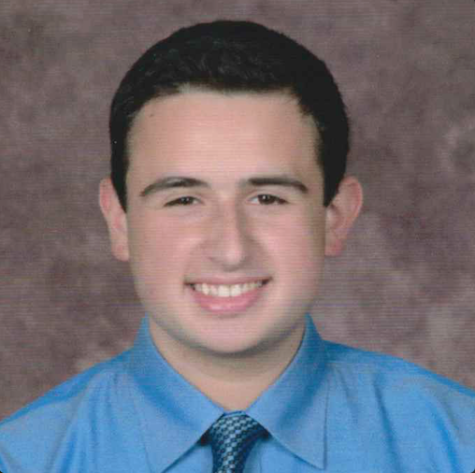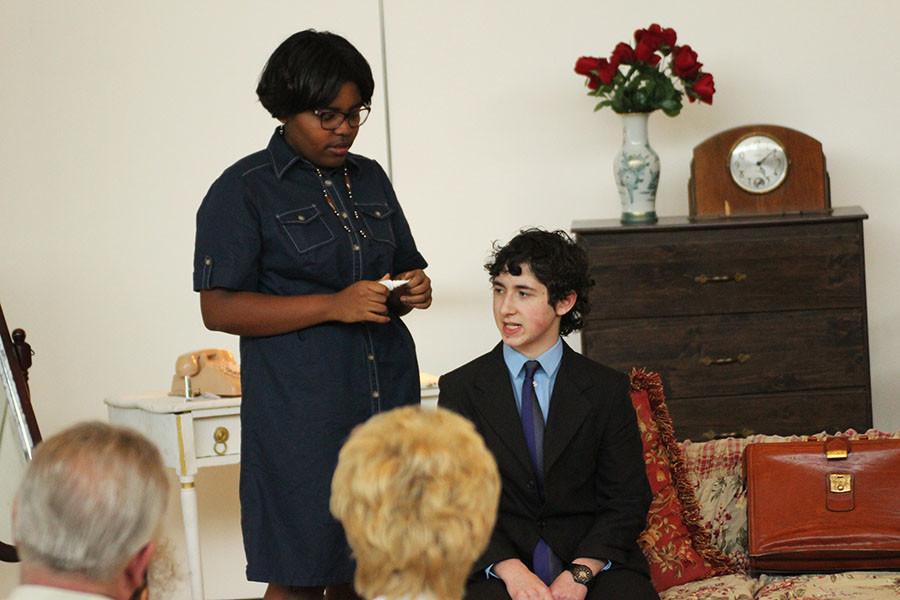Drama Program Lacks Director, Space, Participation
Students who seek an outlet for creative expression can no longer turn to the BHS drama program. At least, not for the 2015-16 school year.
“There is no drama department this year,” Principal Dr. Ed Klein said. “It [is] a matter of space and student interest.”
Since the retirement of longtime director Sheila Heyman, district officials have struggled to retain someone to lead the program.
“We have changed directors, pretty much all of my high school career,” senior Devan Peavy said. She has been heavily involved with the program since her freshman year.
Heyman, who was employed by the district in 1987, then from 1994 to 2013, wrote in an email interview that she directed a total of 39 productions during her tenure.
Beachwood native Pierre Brault, who succeeded Heyman in the 2013-14 school year, resigned after a mere eight months.
Peavy said Brault proposed Bert Royal’s Dog Sees God: Confessions of a Teenage Blockhead as the spring production.
“I said it wasn’t going to be appropriate,” Klein explained. Peavy noted that several parents had agreed. The production touches on drug use, teen violence, sexual identity and other issues.
It was at this point Brault resigned, Peavy explained.
Justin Steck succeeded Brault in the 2014-15 school year, but left after just one year, due to “personal reasons,” Peavy said.
Drama students are also struggling with the lack of a performance space, as the BHS auditorium undergoes renovations.
The auditorium, which has been closed to the public since the 2012-13 school year, is slated for completion by Aug. 2016.
In the interim, recent drama productions have been held in the community room, which Klein said is not conducive to holding performances.
“We felt the community room wasn’t serving our best needs,” Klein said.
The room most often serves as a space for staff meetings, small student assemblies and community events.
Heyman explained that district administrators disposed of nearly all of the drama program’s props and set-building materials in late 2014.
“Granted, there were pieces of furniture that were damaged and could have been tossed, but to throw everything out is a decision I couldn’t, and still can’t, comprehend,” she wrote.
Klein said Heyman had been instructed multiple times to remove the items from the building, as the Beachwood Fire Department had deemed them to be a fire hazard.
He explained that the district did not dispose of items that would be difficult to find again, should they ever be needed for future productions. The majority of discarded items were ones the district felt were no longer fit for use.
However, Peavy is primarily concerned over the lack of interest in a school-sponsored drama program.
“We’re left with a rebuilding process for students,” Peavy said. “We were going to [organize it] ourselves, but there has … always been a lack of participation.”
Klein agreed.
“We’ve … found that our students [who] are interested in drama … have a variety of means to hone those skills [outside of BHS],” he said. Such opportunities, Klein added, include the Beachwood Recreation Community Theater and the Excel TECC program at the Chagrin Falls Performing Arts Academy.
While it may be too late for Peavy and her senior classmates, she expressed optimism for the program’s future.
“[I hope] someone picks it back up, or the school provides a director,” she said.
Heyman concurred.
“I think it is vital that a high school have an in-house theater program,” she wrote.
“Drama Club has always been a place where students of all levels of talent, intelligence, social adeptness and special needs students were all treated with respect and support and accepted as equals,” Heyman noted.

Grant Gravagna has been active on The Beachcomber staff for four years. As Editor-in-Chief, he oversees a staff of reporters, photographers and cartoonists....













